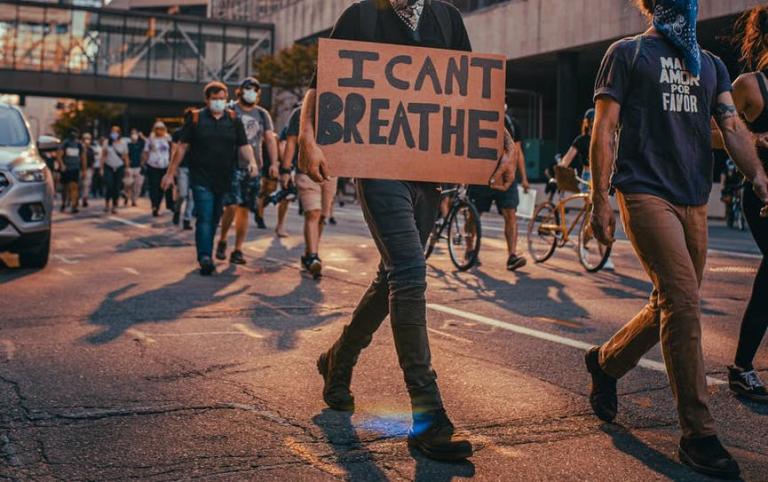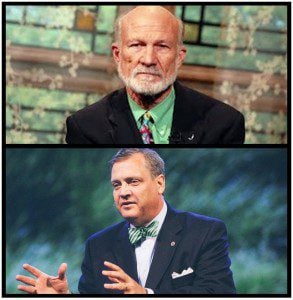
The 2023 Asbury revival will likely become the release valve that dissipates the energies of change created by Black Lives Matter and Me Too movements, as well as the tensions arising from white evangelicalism’s brazen embrace of Trumpism and Christian Nationalism.
The last major Asbury revival was in 1970. At the time, the Civil Rights movement and Sexual Revolution had created so much tension and pressure that white evangelicalism seemed poised to heed its own prophetic arm and embrace real change. What they did instead is have a revival. The 1970 Asbury revival spread throughout evangelicalism, acting as a release valve, lowering the tension and pressure so white evangelicalism could ignore its prophetic voices.
As a result, evangelicalism’s issues with systemic racism and patriarchy were never faced. White evangelicalism spent the 1970s decrying the Social Gospel, while beneath the surface it was consolidating its strength and organizing for the culture wars of the 1980s.
Asbury Revival 2023
American evangelicalism sits at an inflection point. Prophetic voices calling for a confession of systemic racism, patriarchy, and Christian Nationalism are creating the kinds of pressures and tensions that often give rise to reform. The church could use this energy to foster prophetic renewal. If history is our teacher, what the church will do instead is have a revival, dissipate the energies of change, and continue down the road to self-destruction.
This dissipation of the energies required for systemic change may be why American revivals exist at all. The morbid symptom of this would be that, as an institution, Asbury points to more than a 100 year history of 9 different revivals. Why the constant need for revival? Could it be revivals actually reinforce the status quo instead of challenging it? Historically, it’s possible to argue that part of the role Asbury plays in white evangelicalism is that—through its own history of revivalism—Asbury is the release valve to dissipates the energies of genuine prophetic renewal.
Any revival Christians could trust in 2023 would be rooted in the confession of white evangelicalism’s systemic racism, patriarchy, nationalism, and consumerism. Revival would center on repentance for the mistreatment of people of color, women, and the LGBTQ community. It would be about turning from the evil embrace of Christian Nationalism and Donald Trump. It would confess the church’s idolatry and obeisance to predatory capitalism despite its horrific impact on the poor and the planet.
The Danger of the Spectacle
Americans have a tendency to convince themselves they can only see God in the earthquake, wind, and fire, and not the still small voice. The American God comes as the Spectacle.
The danger of the Spectacle (and I’m cribbing Guy Debord) is that it opposes genuine social action. Debord once wrote, “Spectacle is the sun that never sets over the empire of modern passivity.” Revival breeds passivity. It becomes the spectacle that deflates real action, replacing it with a consumer event.
Revival is the Spectacle that short-circuits the boring, un-sexy, day-to-day, soul-grinding work of systemic change. It does so by turning well-meaning people—would-be activists who long for genuine renewal—into passive consumers of the Spectacle instead of workers for change.
Once an event becomes a Spectacle it can no longer icon. It cannot image anything universal because it has become about itself. In this way the Spectacle is the representation of change and not real change itself. My sense is that this is how American revivalism functions. If true, this means the further the Asbury Revival spreads, the less likely it becomes that American evangelicalism will ever face its darkest impulses and change.
Is the Asbury Revival Legit?
Are there voices within the 2023 Asbury revival that could lead the church toward the embrace of prophetic change? I don’t know. I guess time will tell. I think it’s important to judge any revival the way Jesus judged most actions: according to how they impact those on the margins. If a revival isn’t good news for the marginalized, then it’s not good news, and it’s not reviving anything worth keeping.
What I do know is that American Christianity doesn’t need another spectacle. American evangelicalism doesn’t need a revival to warm the hearts of individuals, it needs a smack upside the head. It needs to hold the tension of its own troubling past and present instead of dissipating the tension and pressure necessary to foment true reform. What it will likely choose instead, is another Spectacle to convert would-be agents of change into spiritual consumers.
Follow Me on Twitter: @Tim_Suttle

















